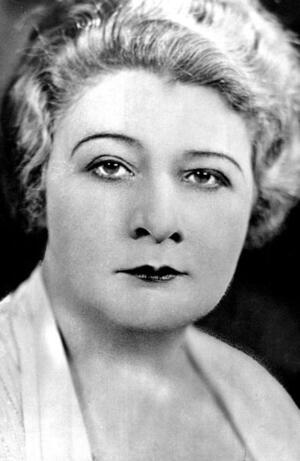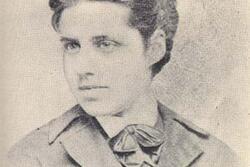Sophie Tucker: All About That Bass
Sophie Tucker was a heavyweight performer—in every sense of the word. Right up to her death in 1966 at age 82, Tucker, the so-called “Last of the Red Hot Mamas,” took her act worldwide, combining her singing talents and bawdy humor into a legendary act that would manage to survive the demise of vaudeville and the dawn of the television age—all while remaining determinedly and definitively plus-sized.
From the time she was a young girl, Tucker’s weight was a major part of her appeal. Accompanying her sister on piano at amateur shows in Hartford, Connecticut, Tucker, the outgoing daughter of Russian immigrants, would often hear calls from the audience for “the fat girl,” which Sophie, 145 pounds at age 13, would readily oblige. Bitten by the entertainment bug, she was determined, to the chagrin of her traditional Orthodox parents, to embark on a life in show business. Though Tucker, a talented singer, managed to nab a steady gig on the vaudeville circuit, her big break came at a cost: Tucker’s producers forced her to perform in blackface—despite her protests—insisting that it was the only way that a woman as “big and ugly” as she could be successful. It was only the loss of her costume trunks one night that finally enabled Tucker to reveal her true self: not a Southern “coon singer,” but a white Jewish girl. Endearing herself to audiences with her underdog looks and racy material, her fame grew at a rapid pace.
“Gonna miss your big fat momma some of these days,” Tucker sang in her signature song, “Some of These Days,” and boy, was she right! In a culture where skinny is seen as best, women—whether they be singers, comedians, writers, or regular Janes—are pushing for better representation of female body types, and the media is slowly but surely beginning to heed the call. Meghan Trainor and Nicki Minaj are proclaiming their love for their bodies all over the airwaves; comedians Rebel Wilson and Melissa McCarthy play confident and hilarious characters in successful sitcoms and movies; writers like Lena Dunham and Caitlin Moran are giving the world female characters who frankly and openly explore their sexualities without being a size 2.
Sophie Tucker, who performed songs with titles such as “I Don’t Want to Be Thin” and “I’m the 3-D Momma with the Big Wide Screen,” would be delighted by this recent outpouring of body positivity. If Sophie Tucker could be with us in the year 2014, she would no doubt be blasting her support all over Twitter and the late night talk shows. Maybe she would be writing a raunchy, no holds-barred memoir, or fighting against the photo shopping of her body on magazine covers. A fiercely independent three-time divorcee and a dedicated adherent to the principle of tzedakah (acts of charity and good causes), Tucker would also be supporting organizations that help women attain power and success.
A London newspaper once described Sophie Tucker as “a big fat blond genius, with a dynamic personality and amazing vitality.” Meghan Trainor may claim to be bringing booty back, but those who remember Sophie Tucker, the self-described “King-Sized Lollabrigida,” would argue that it never left in the first place.
This piece was written as part of JWA’s Rising Voices Fellowship.








This was an excellent piece. My stepfather's mother, Sonia Alomis, shared a room with Sophie Tucker when they were on tour in America. Alomis, with her husband Alexander Asro, formed the Vilna Troupe in Eastern Europe. Asro created the role of "Sasha Smirnoff" in Room Service, which he later performed in the film with the Marx Brothers and the 1953 Broadway revival.
I'm glad that someone in High School knows about ST. Look out for my biography, Sophie Tucker and the Legend of a Red Hot Mama in the future. She sang about her weight for sure, and was incredibly self-effacing, but it occurred in a very different context than the one that you describe with Minaj, Dunham, etc. It took her years to develop this kind of personae and initially she had to perform in disguise (blackface) because she was called ugly. Lauren Sklaroff, Department of History, University of South Carolina
Wow. I so love this piece. I always felt embarrassed and ashamed of my body--especially as a singer and theater nerd in high school. I wish I had known about Sophie Tucker back then. Well done!